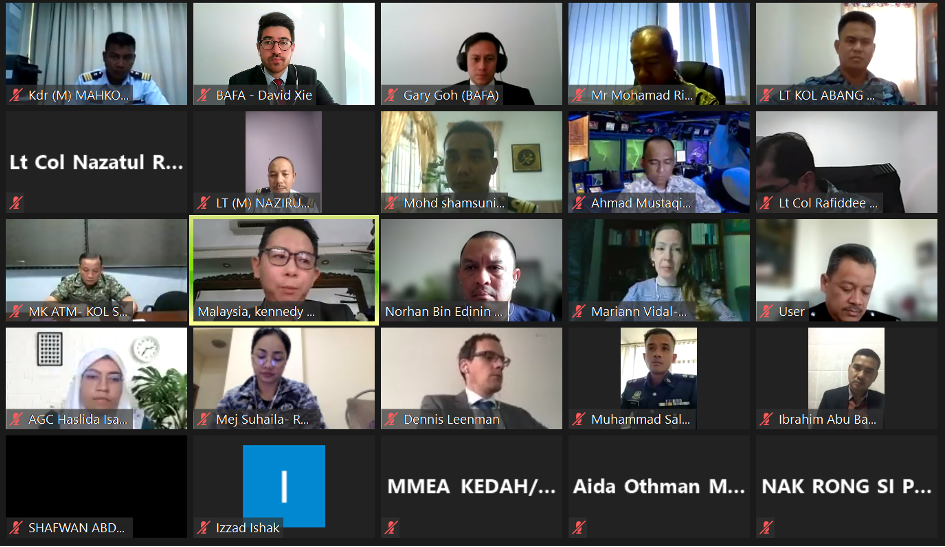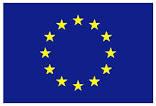
EU ATT OP II - Fourth Roadmap (Online) Activity for Malaysia
The Fourth Roadmap Activity for Malaysia took place online via Zoom on 1 and 2 June 2021 in the framework of the EU Arms Trade Treaty Outreach Project (EU ATT OP II), based on the EU Council Decision 2017/915/CFSP. The activity dealt with enforcement training, best practice examples for the establishment of a national export control system and an interactive case study. It constituted the last activity in the framework of the comprehensive roadmap for Malaysia in the project. Malaysia has been a partner within EU ATT OP II since October 2018. Due to the still-ongoing pandemic, this meeting was organized as an online event to address various aspects of export control as face-to-face meetings are still not possible. The main objective of the bilateral meeting was to check the current status of Malaysia’s national ATT process, provide enforcement officers in Malaysia with basic training on diversion and commodity identification as well as the key points of a national export control system and licensing procedures and also to conduct interactive exercises. 59 participants from 13 different Malaysian ministries and agencies (Attorney Generals Chambers, Joint Force Headquarters, Malaysian Armed Forces, Malaysian Maritime Enforcement Agency, Ministry of Defence, Ministry of Foreign Affairs, Ministry of Home Affairs, Ministry of International Trade & Industry (MITI), National Security Council - Prime Ministers Department, Royal Malaysian Air Force, Royal Malaysian Customs Department, Royal Malaysian Navy, and Royal Malaysian Police) attended this two-day event. The workshop was supported by experts from Hungary, the Netherlads and Latvia and was organised by the implementing entity BAFA. The first day of the workshop kicked off with welcome remarks by the Malaysian MFA, where Malaysia confirmed its determination to ratify the treaty, and a BAFA representative. This was followed by a status quo update presentation from the Malaysian MFA including a summary of past actions, challenges and outlooks on the way ahead. The second half of the day was dedicated to enforcement training with two presentations on diversion risks and commodity identification by an EU customs expert. The second day focussed on the establishment of a national export control system and licencing procedures with a focus on interagency cooperation. Both presentations mentioned good practice examples from the EU and other regions. The final session was an interactive case study with the possibility for participants to take part in poll questions supported by the meeting platform Zoom.Throughout the seminar, participants engaged in discussions and focused on aspects of the presentations applicable to the Malaysian strategic trade control system. The key issues of Malaysia identified in the bilateral meeting were the ongoing search for a lead agency to implement the ATT and the integration of import controls in the current Malaysian strategic trade legislation framework. BAFA and the Malaysian focal point remain in close contact to assess the results of the roadmap and discuss the possibilities of follow up activities. In a de-briefing on 8 June 2021, Malaysia indicated that it would be interested in follow up activities on several topics.
The goal of 'EU ATT Outreach Project (EU ATT-OP)', as part of the European Union Partner-to-Partner (EUP2P) Export Control Programme, is to support the effective implementation of the ATT. Upon request, the project will support a number of States in strengthening their arms transfer control systems with a view to being able to implement the ATT. The project also aims to increase awareness and ownership of the ATT at national and regional levels and therein contribute to its universalisation. A second edition of the project was initiated on 29 May 2017 by Council Decision 2017/915 and it is co-implemented by BAFA and Expertise France.The EU ATT Outreach Project has three different components: 1) Tailored National Assistance Programmes; 2) Ad-hoc Activities; and 3) Regional Seminars. National assistance programmes are developed in close cooperation with partner countries. Key elements of national assistance programmes are: an initial needs assessment visit; inclusive roadmap development; and, practical support follow up activities.










